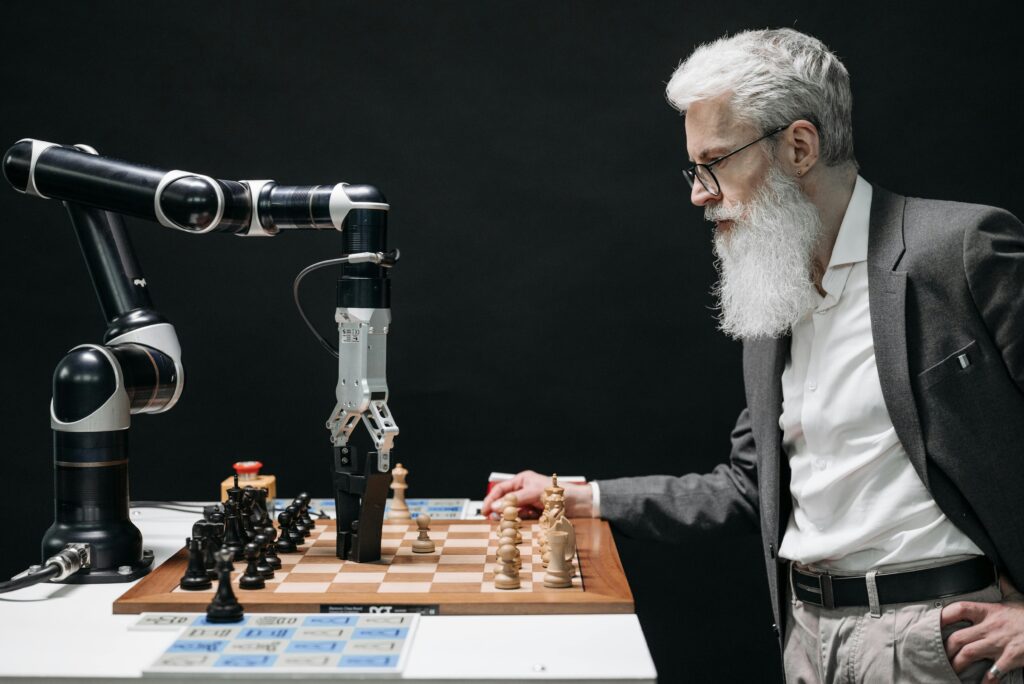As Artificial Intelligence (AI) continues to evolve, the concepts of AI Agents and Agentic AI have emerged as transformative paradigms. While often used interchangeably, these terms represent different levels of autonomy, adaptability, and decision-making in intelligent systems. This document explores both concepts in depth, compares their fundamental characteristics, and examines their real-world applications and future implications.
What is an AI Agent?
An AI Agent is a software-based system capable of perceiving its environment, processing inputs, and performing actions to achieve specific goals. It follows a sense-think-act cycle.
Characteristics:
- Reactive or Proactive behaviour.
- Goal-driven and task-specific
- Can be rule-based or powered by machine learning
- Often operates within a narrow domain
Components:
- Sensors: To perceive the environment (data inputs)
- Decision Engine: To analyse inputs and select actions
- Actuators: To execute actions or responses

What is Agentic AI?
Agentic AI refers to systems that exhibit agency, meaning they can autonomously form goals, make long-term decisions, and self-improve. These systems are not just responsive but can plan, adapt, and act with a higher degree of autonomy.
Characteristics:
- Long-term planning
- Autonomy in goal selection
- Environment modelling and learning
- Ability to self-reflect or adapt strategies
- Higher level of independence from human instructions
Philosophical Perspective:
The term “agentic” emphasizes intentionality and self-directedness—qualities traditionally associated with human cognition.
Key Differences: AI Agent vs. Agentic AI
| Feature | AI Agent | Agentic AI |
| Autonomy | Limited to predefined tasks | High — can set and pursue own goals |
| Goal Definition | Goals are externally defined | Can define or redefine its own goals |
| Planning Horizon | Short-term, reactive | Long-term, strategic planning |
| Learning Capability | Basic or task-specific | Continuous, adaptive, multi-domain |
| Environment Interaction | Often limited, rule-based | Complex, dynamic modelling of environment |
| Self-Improvement | Minimal | Built-in self-optimization capabilities |
| Examples | Siri, Alexa, Spam Filters | Auto-GPT, Devin AI, Self-driving fleets |
Use Cases and Applications
AI Agent Use Cases:
- Virtual Assistants (e.g., Apple Siri, Google Assistant)
- Fraud Detection in banking
- Recommender Systems in e-commerce
- Autonomous Drones for surveillance
Agentic AI Use Cases:
- Autonomous Research Agents (e.g., Auto-GPT)
- Software Engineers (e.g., Devin by Cognition Labs)
- Intelligent Tutoring Systems that evolve based on learner performance
- Mission Planning Systems for space or military operations
Real-World Examples
AI Agent Examples:
- Amazon Alexa: Executes predefined tasks like playing music or setting alarms.
- Tesla Autopilot: Handles specific driving tasks within geofenced contexts.
Agentic AI Examples:
- Auto-GPT: Can autonomously decide tasks, perform research, build code, and iterate until a goal is reached.
- Devin AI: Functions as a self-sufficient software engineer, writing code, debugging, testing, and deploying solutions.
- Open Interpreter: Acts as a fully functioning operating system controller, managing tasks without constant user prompts.
Future Scope and Trends
AI Agent Future Scope:
- Integration in Smart Homes and Cities: Coordinating multiple devices
- Edge AI: Agents running independently on low-power hardware
- Collaborative Robotics: Teams of AI agents working with humans
Agentic AI Future Scope:
- Personalized Autonomous Employees: AI with job roles, learning from feedback
- Generalist Research AI: Systems performing autonomous scientific discovery
- Self-Healing Infrastructure: Agentic AI managing and repairing networks or codebases.

